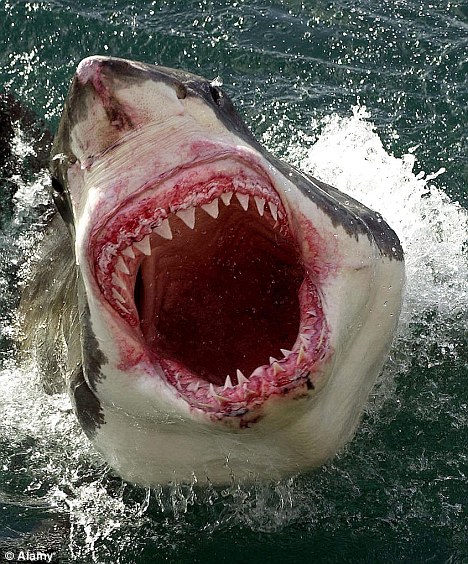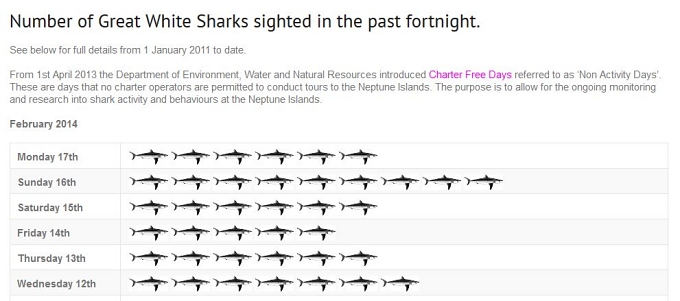Great White Sharks
/They call them white pointers here in Australia and there are lots of them around, we're told, Ever since I saw “Jaws”, I hear that duh-duh, duh-duh, duh-duh in my mind whenever I'm swimming or diving in the ocean (sometimes even in the deep end of the pool). We've seen many sharks in our travels and truth be told, once you become accustomed to them being around, you keep out a wary eye, but they usually don't bother you. I've been known to walk on water if one gives me the “I'm hungry for lunch look” once too often. These were not, however, great whites, one of the largest predators on earth.
It didn't take reading the guide book nor the cautions of locals advising us not to swim off the boat when anchored off tiny islands, to give us warning that great whites were in the area. All we really needed to see were all the ads for “Swim with the Great White Sharks … Cage Dive With Great Whites”, to alert us there were quite a few big guys in the neighborhood. A recent shark attack and resulting death of a South Australia man certainly got everyone's attention.
In Port Lincoln, we had the opportunity to do a shark cage dive. We thought about it … for less than a nanosecond. I read the FAQs on the website page. We're PADI-certified divers, but you don't need to be. I mean, what could go wrong? The cost? ~$500AUD/pp, but this includes breakfast/lunch and snacks (for us or the sharks?). None of the FAQs addressed my particular question regarding messing my pants underwater … very tacky, I know, but still, I wondered.
It seems that though great whites account for the most unprovoked shark attacks on humans, we are definitely not their preferred diet. Talks with the locals in Port Lincoln indicated that staying away from sea lion colonies is prudent. Evidently, sea lions are right up there on the top of their preferred dining, especially the pups. Swimming in the open ocean is not advised and, if you remember, Port Lincoln had a caged-in protected area near the jetty for safe swimming.
Because their numbers were dwindling, Australia added the great white shark to its list of protected “vulnerable” species. Great whites have no natural predators (other than man)and it seems the population is slowly increasing since “sports harvesting” is no longer legal although their numbers are not yet where they should be.
A few Great White Shark facts for you …
- Known for their size, average adult great whites range grow to about 21 feet (6.4m) … about half the length of Nine of Cups. Some have been recorded as big as 26' (8m). Lot of fish!
- They mature at about 15 years and it's now thought their lifespan is ~70 years.
- Great white sharks can accelerate to speeds that exceed 35 mph (56 km/h).
More shark facts, try this link.
Talking on Skype with David's sister recently, we mentioned great white sharks in the area and she suggested we move farther west to avoid them …
“Well, they're are lots of them in Western Australia, too”, we told her.
“Well, go further north then”, she countered.
“Then there are salt water crocs. And if you go inland, there are poisonous snakes and spiders and ...” Seems there's always a lot to keep your mind busy and alert in Australia.
David has had no urge to check the hull lately or the prop. We haven't seen any great whites circling the boat yet, waiting to attack. Rest assured, if we do, you'll be the first to know.





